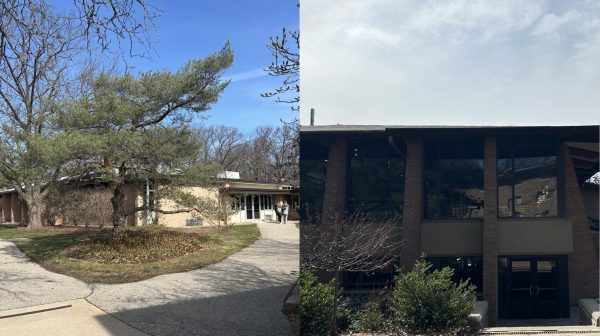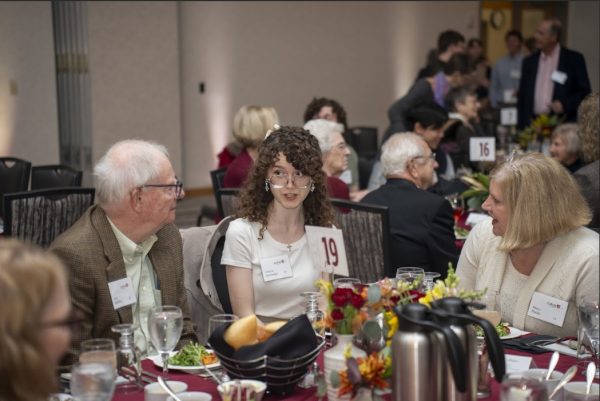Decided: How undecided students choose their majors
Henry Teusink, a sophomore, came to Calvin unsure of what he wanted to study. He had a pretty good idea of what he did not want to do (science and math) but was not sure what would actually interest him.
Through academic advising, he was introduced to courses in political science, philosophy and economics (PPE), which ultimately became his major.
Some students seem to have always known what they wanted to study in college. But for others, like Teusink, choosing a major can be daunting. Many undecided students feel like they are starting from behind when they start college without a major. But academic advisors offer opportunities for these students to get exposure to many options and to support them in ultimately making their decision.
Majors often shape both academic schedules and social lives. It determines which students you are taking classes with, which opportunities you have, and what your life looks like after completing a degree. Students who start college without a clear idea of which path is right for them are known as “undecided” majors. In fall 2021, the most recent available data, there were about 83 undecided students enrolled at Calvin.
One of those students was sophomore Joseph Broklehurst, who came to Calvin knowing he wanted to get a higher education but with only a vague idea of what he was interested in. Through meeting with his advisor, he was guided to take a few classes in subjects he was interested in. The main focus, however, was on completing his core requirements — which was an opportunity to explore a wide variety of disciplines.
Most students are assigned an academic advisor within their field of study. Undecided students, however, meet with specialized advisors in the Center for Student Success. “We work with the student to help them tackle required core requirements and also explore classes in majors that they are interested in,” Hannah Brenton, student success specialist, said. “Once they decide on a major, they are reassigned to an advisor within that department.”
Professors in departments of interest are another resource for undecided students. In Teusink and Broklehurst’s experiences, talking with family and listening to what was exciting to peers were also helpful in guiding them toward fields of interest.
Broklehurst was inspired by listening to his peers talk about the geology major. “A good group of my friends are all sophomore geology majors as well and they were talking about all their labs, the way their homework was going and what they were learning about and every time they spoke about it I was very interested and very fascinated by what they were doing,” Broklehurst said.
Teusink said he benefited the most from confiding with his parents and using them to bounce ideas off.
Broklehurst experienced pressure to choose a major by the end of his first year in order to plan courses adequately for four-year program completion. Broklehurst initially settled on studying physical therapy. After a semester, however, he decided to switch to geology.
Both Broklehurst and Teusink felt social pressure to choose a major. “I started telling people my major was economics before I had fully committed to PPE just because it was something easy to say,” Teusink said. “Especially in your early years here at Calvin where you’re meeting people, doing introductions in classes, in the beginning of every class you go around and say your name and your major.” To avoid uncomfortable questions it became easier for Teusink to identify with a major, even though he had not decided on one yet.
Broklehurst had a similar experience. “Oftentimes, when I was asked, ‘What’s your major?’ I just picked one of the ones I was interested in because I got tired of explaining that I was undecided,” Broklehurst told Chimes.
Being undecided was a problem both students were eager to solve. Having a decided major has made Broklehurst much more excited about the classes he was taking. “Now that I have a major that I’ve declared and really enjoy, I feel more willing to do the classes and the work,” he said.
Having been undecided early on also came with some benefit for Broklehurst, who completed most of his required core classes in his first year. One of these benefits is he can now focus on his major. “Now it’s just classes I’m interested in versus doing a bunch of core and then maybe one class that I’m interested in like I was doing freshman year.”






